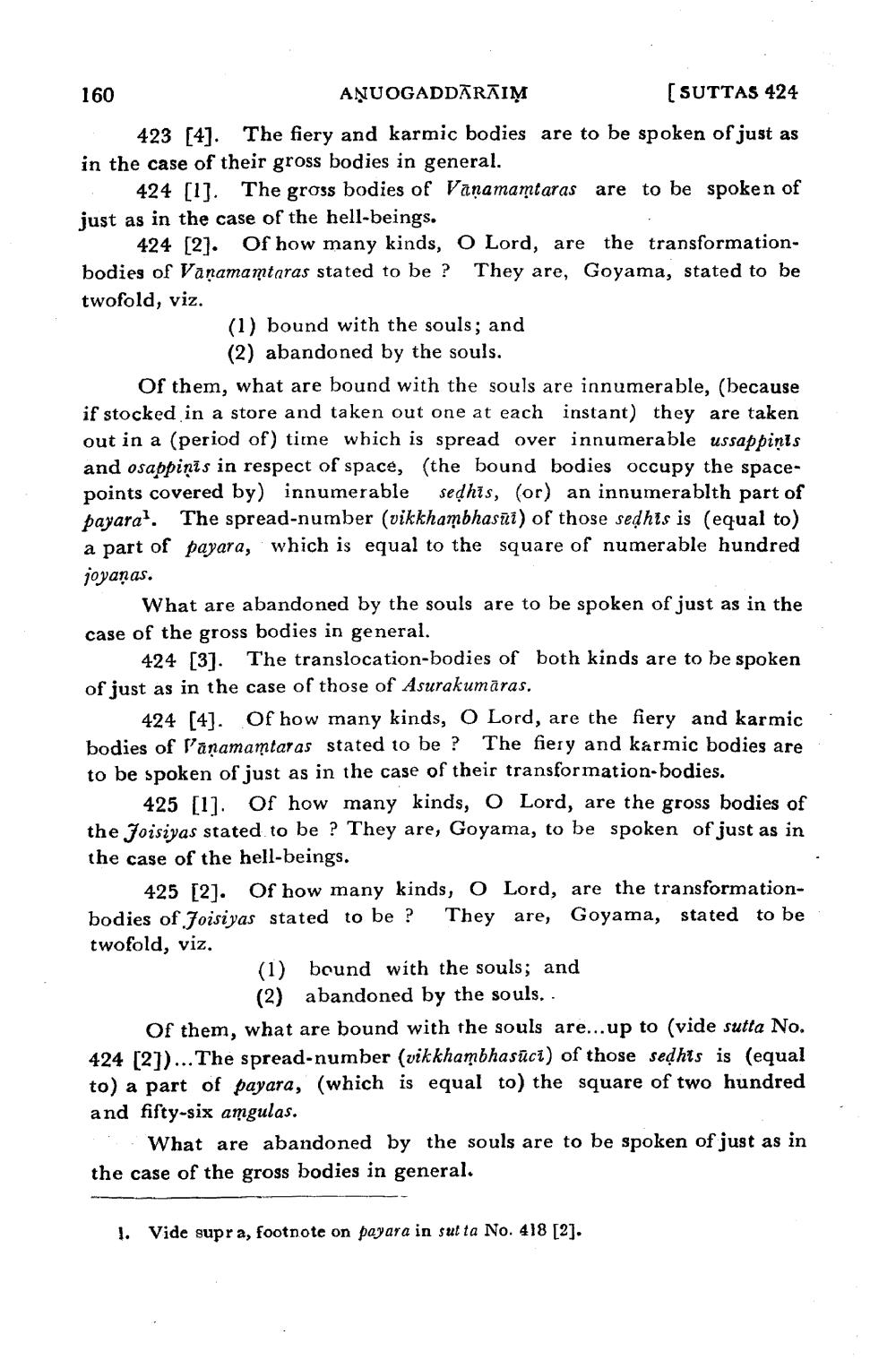________________
AṆUOGADDĀRĀIM
[ SUTTAS 424
423 [4]. The fiery and karmic bodies are to be spoken of just as in the case of their gross bodies in general.
424 [1]. The gross bodies of Vanamamtaras are to be spoken of just as in the case of the hell-beings.
424 [2]. Of how many kinds, O Lord, are the transformationbodies of Vanamamtaras stated to be? They are, Goyama, stated to be twofold, viz.
160
(1) bound with the souls; and (2) abandoned by the souls.
Of them, what are bound with the souls are innumerable, (because if stocked in a store and taken out one at each instant) they are taken out in a (period of) time which is spread over innumerable ussappints and osappinis in respect of space, (the bound bodies occupy the spacepoints covered by) innumerable seḍhis, (or) an innumerablth part of payara1. The spread-number (vikkhambhasui) of those seḍhts is (equal to) a part of payara, which is equal to the square of numerable hundred joyanas.
What are abandoned by the souls are to be spoken of just as in the case of the gross bodies in general.
The translocation-bodies of both kinds are to be spoken case of those of Asurakumāras.
424 [3]. of just as in the
424 [4]. Of how many kinds, O Lord, are the fiery and karmic bodies of l'anamamtaras stated to be? The fiery and karmic bodies are to be spoken of just as in the case of their transformation-bodies.
425 [1]. Of how many kinds, O Lord, are the gross bodies of the Joisiyas stated to be? They are, Goyama, to be spoken of just as in the case of the hell-beings.
425 [2]. Of how many kinds, O Lord, are the transformationbodies of Joisiyas stated to be? They are, Goyama, stated to be twofold, viz.
(1) bound with the souls; and (2) abandoned by the souls..
Of them, what are bound with the souls are...up to (vide sutta No. 424 [2])...The spread-number (vikkhambhasuci) of those seḍhts is (equal to) a a part of payara, (which is equal to) the square of two hundred and fifty-six amgulas.
What are abandoned by the souls are to be spoken of just as in the case of the gross bodies in general.
1. Vide supra, footnote on payara in sut ta No. 418 [2].




